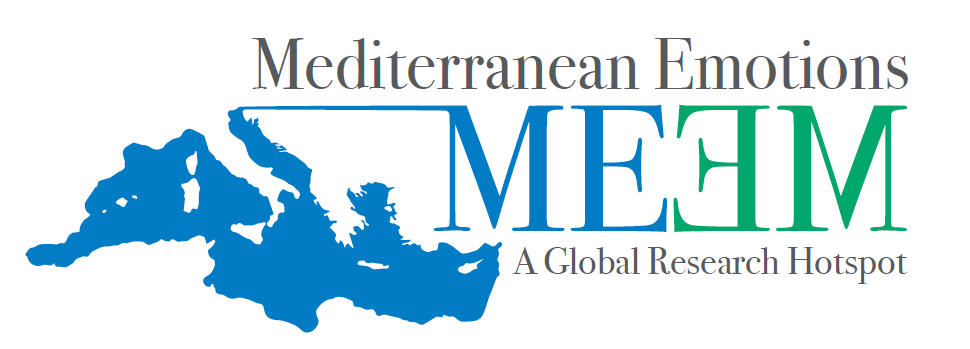
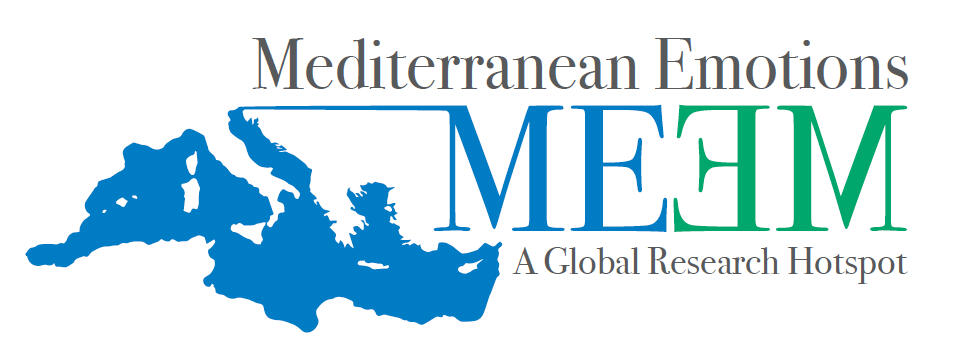
MEEM Seminar Series
"Emotional Grammars of Globalization"
Rob Boddice
History as it Actually Seemed: Theorizing Lived Experience27 February 2025, 17.00-19.00 CETUniversity of Florence (Aula Parva, via San Gallo, 10) and online on G-meetDownload Flyer
Paper Abstract:How reality is perceived by humans is situated and contingent and mutable. Meaning is derived, shared, confirmed and reproduced in the interrelation of subjectivity, intersubjectivity and collectivity. An assessment of relative authenticity is found in this dynamic relation: references to ‘my lived experience’ or my truth are perforce appeals to those who will validate it as the truth. It is such a consensus, collectively formed and intersubjectively maintained, that underscores and underwrites the situated perception or reality. This is framed, delimited, defined, and scripted by a context that is in turn haunted by agencies of power and authority and by the legacies they leave: logics, technologies, systematic limitations and institutionalised conceits. Ultimately, people act on the basis of what their reality seems to be. This amounts to something like an historical lived-experience theory of social practice and power: history not wie es eigentlich gewesen ist – how it actually was – but history wie es eigentlich erschienen ist – how it actually seemed.
Speaker's Bio:Rob Boddice is Senior Research Fellow at the Research Council of Finland Centre of Excellence in the History of Experiences (HEX), Tampere University and Adjunct Professor in the Department of Social Studies of Medicine at McGill University. He has previously held positions at Bard College Berlin, Harvard University, the Max Planck Institute for Human Development, and Freie Universität Berlin.
Dr Boddice is chiefly known as an historian of emotions, experience, science and medicine, with special interests in pain, medical experimentation, and interdisciplinary engagement. He is the author or editor of 14 books of historical non-fiction, as well as dozens of articles, book chapters, and reviews. He published the monograph Emotion, Sense, Experience (Cambridge) in 2020, together with Mark Smith, and the second edition of The History of Emotions (Manchester) in 2024. His latest book, The Power of Belief: Why the History and Science of the Placebo Effect Matters to Modern Medicine, is forthcoming with Reaktion Books.
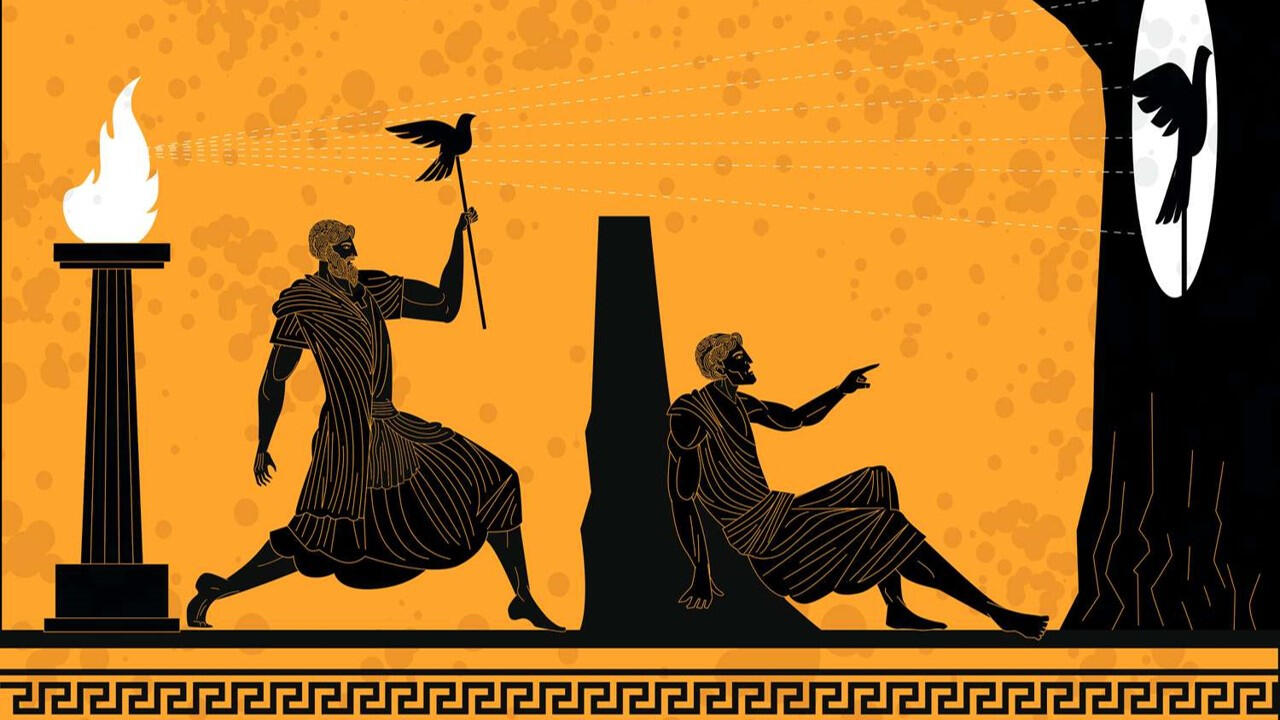
José María Pérez Fernández
Inebriated by a barbaric language I need to possess immediately:
the emotional tribulations of a grammarian trying to learn Arabic6 December 2024, 10.00-12.00 CETUniversity of Florence (Aula Sapienza, Via San Gallo, 10) or Online on G-meetDownload Flyer
Paper Abstract:Nicolas Clenardus (ca. 1493/4-1542) was a Flemish humanist educated in the philological principles of the Collegium Trilingue. His intellectual outlook was therefore that of major figures such as Erasmus and Vives. He was also a militant Catholic—in Louvain he studied under Jacobus Latomus, whom he always addressed in his correspondence as his dear praeceptor. His commitment to the cause of Emperor Charles V’s project of Universitas Christiana connected him with Hernando Colón’s project for a universal library and also with similar millennarian projects that emerged from the humanists around Leo X and the pontiffs who succeeded him. The author of successful Greek, Latin, and Hebrew grammars, Clenardus also developed a strong desire to learn Arabic. He thus set off southwards from Louvain on a pilgrimage that would take him first to Spain and Portugal: in Granada he improved the skills in Arabic he had taught himself while still in Louvain, thanks now to Mohammad Kharruf al-Ansari al-Tunisi, a scholar who was at the time a captive under the Marquis de Mondéjar in the city of the Alhambra. He finally set off for Morocco in 1540, and settled in the Jewish quartier of Fez, where he stayed for about 15 months trying to obtain manuscripts and improve his knowledge of the language, hermeneutics, and doctrines of Islam. His pilgrimage can be traced in his correspondence, (Nicolai Clenardi Peregrinationum ac de Rebus Mochometicis Epistolae Elegantissimae, published in 1550) which recounts the different stages of his travels to Morocco, up until his return to Granada in 1542, where he died. Clenardus’ correspondence does not just give a detailed description of his pedagogical approach to language learning, it also constitutes a unique testimony of the way in which a humanist educated in the tradition of Lorenzo Valla and Erasmus approached what he described as a barbaric language by which he avowedly felt both captivated and inebriated. Clenardus conveyed his determination to learn Arabic by means of Freudian slips which betray a combination of guilt and keen eroticism. He referred to it as the horrid language of the Africans (sermone Afrorum horridissimo). In his Letter to Christians he acknowledged that he had been captivated by his love for a barbarian language (captus … amore barbarae linguae) and added that he felt intoxicated with desire (ebrium ferri cupididate huius linguae). He described Arabic as his own Helen of Troy, whom he needed to possess immediately (celerius mea potirer Helena). If on the one hand the language used by Clenardus to describe his desire to learn Arabic evinced a complex sense of guilt caused by his irrefrenable lust for the language of the infidels, on the other hand his ulterior motives proved to be utterly aggressive, since his ultimate aim was to weaponise his knowledge of Arabic in order to rhetorically slay Muslims with their own s/word. In spite of the eventual failure of his attempts at publishing a grammar and dictionary of Arabic, and the creation of a library of Arabic texts, his testimony provides material for an untold episode in the general history of the complex and frequently paradoxical ways in which Christian Europe approached Arabic language and culture during the early decades of the sixteenth century.
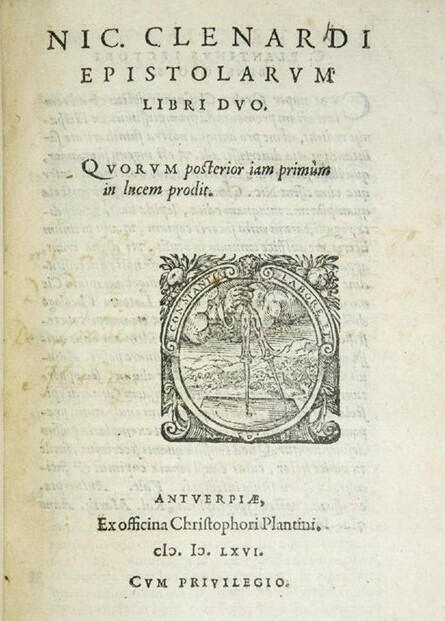
Speaker's Bio:
José María Pérez Fernández teaches early modern cultural history, translation studies, and comparative literature at the University of Granada in Spain. He conducts research in these disciplines both at home and abroad, as a visiting fellow at institutions that include the European University Institute, Villa I Tatti in Florence, as well as the universities of Padua, Florence, Oxford and Cambridge. Between 2019 and 2023 he led the Paper in Motion work group, which was in turn part of the People in Motion COST action, led by Prof. Giovanni Tarantino—with whom he has curated exhibitions at the Biblioteca Riccardiana in Florence and the Archivio di Stato in Prato. In 2023 he edited alongside Gaetano Sabatini a special issue of the Journal of European Economic History (Paper and the Economy of Knowledge in the Early Modern Mediterranean: Finance, Semiotics and the Communication Revolution). He is currently working on a monograph for OUP on the reception of Thucydides between Lorenzo Valla and Thomas Hobbes, and he is one of the editors of the forthcoming edition of Hernando Colón’s Libro de los Epítomes, also for OUP.
Elisa Frei
Salt & Solitude:
Ilarione Sala and the Emotional Cost of Missionary Mobility (c. 1700)1 July 2025, 10.00-12.00 CESTOnline on G-meetDownload Flyer
Paper Abstract:This presentation delves into the unpublished diary (c. 1700) of the Italian abbot Ilarione Bonaventura Sala, who was dispatched by the Congregation of Propaganda Fide to assist in the complex negotiations surrounding the Chinese Rites Controversy. While his final destination was the Qing Empire, much of Sala’s surviving narrative concerns the long and emotionally charged oceanic journey that brought him there.
Throughout the voyage, Sala documented his experiences with meticulous care: from the daily rhythms of shipboard life to the interpersonal dynamics among religious travelers and sailors, from the unfamiliar customs and cultures encountered en route to reflections on his own sense of displacement.
Solitude is one of the most pervasive emotional undercurrents in the diary. Uprooted from his familiar world—culturally, spiritually, and relationally—Sala often found himself overwhelmed by distance and uncertainty. Yet his writing also reveals how vital food, companionship, and curiosity became as strategies for emotional survival. Meals shared, stories exchanged, and tastes discovered served as small but significant anchors amid the instability of travel.
By focusing on the emotional dimensions of Sala’s journey rather than its theological or political stakes, this paper offers a window into the fragile resilience of a Mediterranean religious subject negotiating a new global reality—one shipboard encounter, one bowl of rice at a time.
Speaker's Bio:Elisa Frei is an Assistant Professor in Church History at the Goethe-Universität Frankfurt. She also works as a project assistant for the Digital Indipetae Database, hosted by the Institute for Advanced Jesuit Studies at Boston College, and as an assistant editor for the journal Archivum Historicum Societatis Iesu. She is a research associate at the University of York, where she spent part of her PhD in History, after the BA in Archival Studies and Librarianship, the state diploma in Archival Studies, and the MA in Philology and Literary Hermeneutic. She studies the Society of Jesus during the early modern period, its missions in East Asia, and the formal path to reach them – through the so-called Litterae Indipetae, source material on which she has extensively written.
In 2023 she published her first monographs: Early Modern Litterae Indipetae for the East Indies (Brill) and ‘Bussar ben forte per aprirsi la porta nell´Indie’. Negoziare la missione nella Compagnia di Gesù (XVII-XVIII sec.) (Edizioni dell´Orso). She also co-edited Profiling Saints. Images of Modern Sanctity in a Global World (Vandenhoeck & Ruprecht, 2023) and Istoria della Compagnia di Gesù. L’Asia by Daniello Bartoli (Einaudi, 2019).
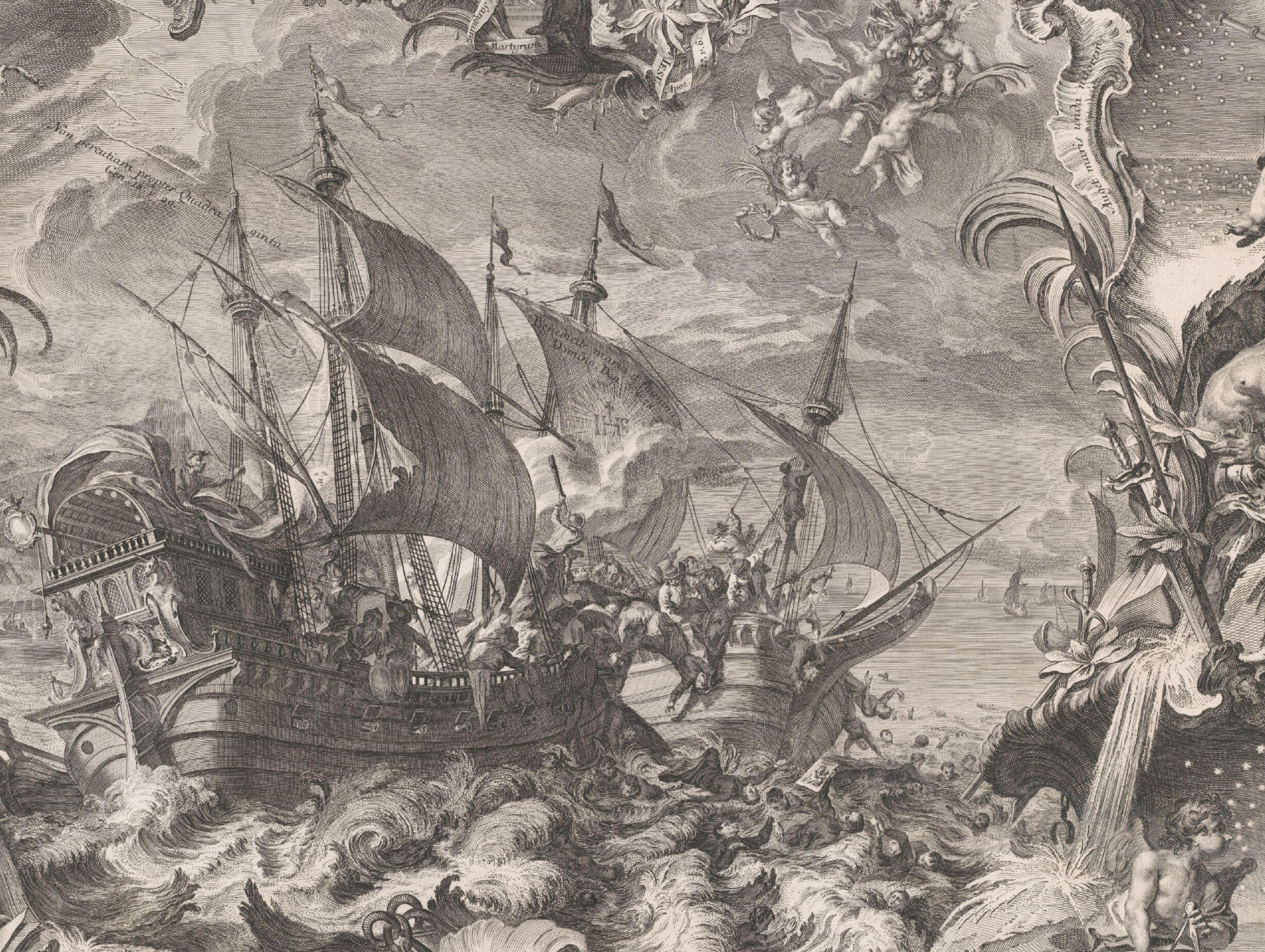
Pietro Delcorno
“Look how I suffer and make my Passion yours”
The Passion of Christ as collective emotional script (1300-1500)12 May 2025, 15.00-17.00 CESTOnline on G-meetDownload Flyer
Paper Abstract:Starting from the recent volume Communicating the Passion: The Socio-Religious Function of an Emotional Narrative (1250-1530) (Turnout 2025), this seminar will discuss how the commemoration of the Passion of Christ was a key element in late medieval religious culture. First, it will exemplify the different media involved in this cultural process and their interplay, next it will focus on the ways sermons fostered an affective approach to the Passion and tried to control the emotional response of the audiences. Particular attention will be given to the dramatization of the sorrows of the Virgin Mary and of the hatred of the Jews, whose opposite behaviours served to polarize the reactions of the faithful, teaching them both to love and to hate other people.
Speaker's Bio:Pietro Delcorno, Ph.D. (2016) is Associate Professor in Medieval History at Alma Mater Studiorum - Università di Bologna. He has published widely on medieval preaching and religious theatre and on late medieval social history, including Lazzaro e il ricco epulone: Metamorfosi di una parabola fra Quattro e Cinquecento (Il Mulino, 2014) and In the Mirror of the Prodigal Son: The Pastoral Uses of a Biblical Narrative (c. 1200-1550) (Brill, 2018).

Paola von Wyss-Giacosa
Drawing Distinctions. Bernard Picart’s Tableau des principales religions du monde (1727)26 May 2025, 11.00-13.30 CESTOnline on G-meetDownload Flyer
Paper Abstract:This seminar will focus on the Tableau des principales religions du monde, a large engraving designed
and executed by the renowned French illustrator Bernard Picart and introduced to the public in
1727 as frontispiece for the Cérémonies et coutumes religieuses de tous les peuples du monde (Amsterdam, 1723-1737). Picart was responsible for the pictorial conception and execution of the seven in-folio volumes. He was personally involved in and knowledgeable about religious debates of his time. His frontispiece, as I argue, was not merely a visual prelude, nor was it just a gripping synthesis of the Cérémonies volumes’ argument. The elaborate sheet, featuring “the main religions of the world,” was quite deliberately composed in the manner of a tableau vivant and is a noteworthy visual source for the study of emotions history: Its conception was theatrical, and no doubt meant to be affectively engaging, with personifications of religious views and historical figures seemingly taking the stage to defend their position, displaying a wide range of emotional reactions, facial expressions and gestures as well as intriguing iconological references. We will discuss how Picart intended to challenge his viewers, both intellectually and emotionally, through this highly sophisticated composition. What he created was a crucial discursive pendant to his
pictorial scholarship on ceremonial action, a dense image offering a visual space for public reflection and dialogue on religion(s).
Speaker's Bio:Paola von Wyss-Giacosa is member of the Gotha Research Centre and of the international research group Media and Religion. She is one of the editors of the Brepols series Histories in Motion and of the journal Cromohs. Her research interests include the early modern discourse on religion and idolatry, antiquarianism and visual culture. She is author of Religionsbilder der frühen Aufklärung: Bernard Picarts Bildtafeln für die ‘Cérémonies et coutumes religieuses de tous les peuples du monde’ (2006). Among her edited volumes are Understanding Jesus in the Early Modern Period and Beyond. Across Text and Other Media (2019, with C. Facchini), Through Your Eyes: Religious Alterity and the Early Modern Western Imagination (2021, with G. Tarantino) and Visual Reflections across the Mediterranean Sea (2023, with N. Fritz).
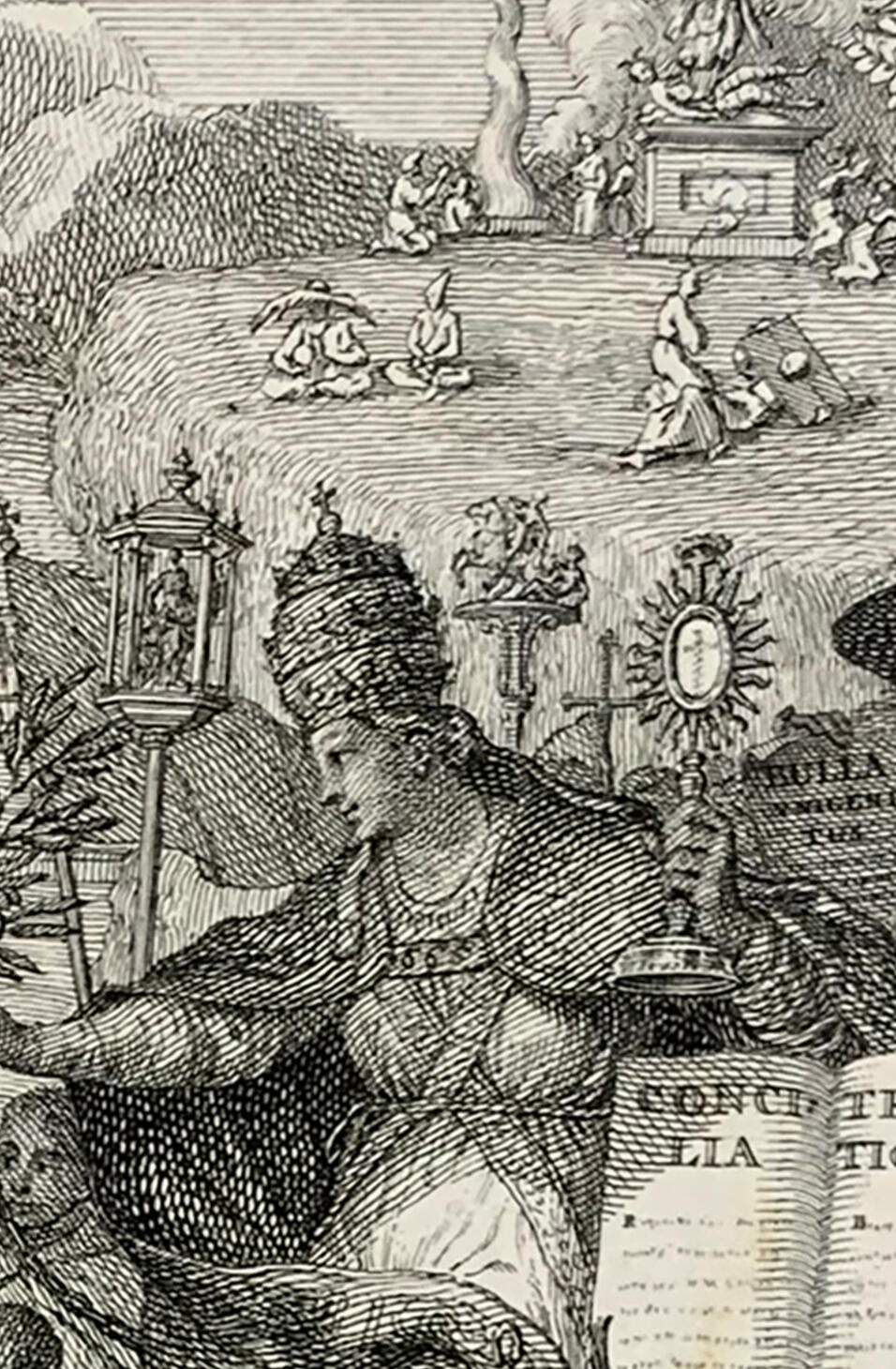
Wanessa Asfora Nadler
Feeling Emotional about Food in the Early Middle Ages.
Some Notes on Food Ambivalences3 June 2025, 15.00-17.00 CESTOnline on G-meetDownload Flyer
Paper Abstract:Early medieval thought regarding food is primarily shaped by ecclesiastical views. Theoretically, food can serve one of two roles concerning the human body: it can resemble the forbidden fruit, contributing to the body’s decay due to original sin, or it can function like the Eucharistic host, nourishing and maintaining the glorified body and preparing it for eternal life. There is a necessary understanding of food that must be cultivated, ensuring it does not act as the fruit that deprived humanity of Paradise but rather as the viaticum that will ultimately restore it at the end of time. These concepts seem to be opposing and, at first glance, mutually exclusive. However, in this seminar, I will argue that early medieval thought about food can move beyond these contrasting metaphors—the forbidden fruit and the host—by presenting a more nuanced and ambivalent perspective on food. This ambivalence may evoke various emotional responses related to food, including fear, disgust, contentment, and, perhaps, anxiety. To support this argument, I will re-examine well established writings by scholars such as John Cassian, Augustine, Bede, and Alcuin, in light of contemporary insights from the field of the history of emotions.
Speaker's Bio:Wanessa Asfora Adler is a historian who specializes in Medieval Food History. She has published several articles in scholarly journals that explore the relationship between food and medicine during the Middle Ages and the Renaissance. Additionally, she authored a book in 2014 focused on the medieval history of the Roman cookbook attributed to Apicius. Currently, she is a faculty member at Syracuse University in Florence. She is also a researcher at the Centre for Classical and Humanistic Studies at the University of Coimbra and at the Laboratory of Theory and History of Medieval Media (Lathimm) of the University of São Paulo and Federal University of Rio de Janeiro. Furthermore, she is a correspondent member for Latin America of the journal Food & History, published by the Institut Européen d’Histoire et des Cultures de l’Alimentation.
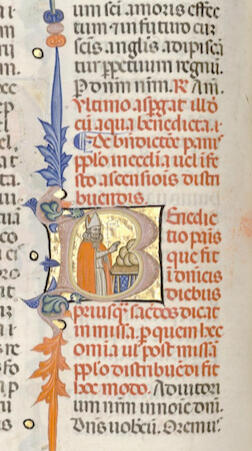
Piroska Nagy
Think With! From Emotional to Affective Communities to Collective Experience28 March 2025, 15.00-17.00 CETOnline on G-meetDownload Flyer
Paper Abstract:This seminar starts with discussing the notion of emotional communities from the point of view of a historian who works mainly in French, where émotions do not mean exactly what emotions mean in English. Reflecting on the semantic differences between languages helps to think, what emotions mean from one language to the other: English, French, Italian, which all have their affective vocabularies. I contend that translating the extraordinary analytical tool emotional communities of Barbara Rosenwein in French would be more correct by communautés affectives. Then, two examples taken from the thirteenth century will help to show the difference I make between an affective community, and a community of emotion and experience.
Speaker's Bio:Piroska Nagy is professor of medieval history at Université du Québec à Montréal, Canada. Since her PhD, Le Don des larmes au Moyen Age (Ve-XIIIe s.), Paris 2000, she has mostly worked on the history and historiography of emotions. She launched and managed with Damien Boquet the first French research program on the history of emotions, EMMA, Motions au Moyen Age (https://emma.hypotheses.org/), producing a series of publications (2007-2022). They co-authored Sensible Moyen Age. Une histoire des émotions dans l'Occident médiéval, Paris, 2015, translated in English (Medieval Sensibilities, Polity, 2018) and in Italian (Medioevo sensibile, Carocci, 2018). She is currently working on collective emotions and experiences.
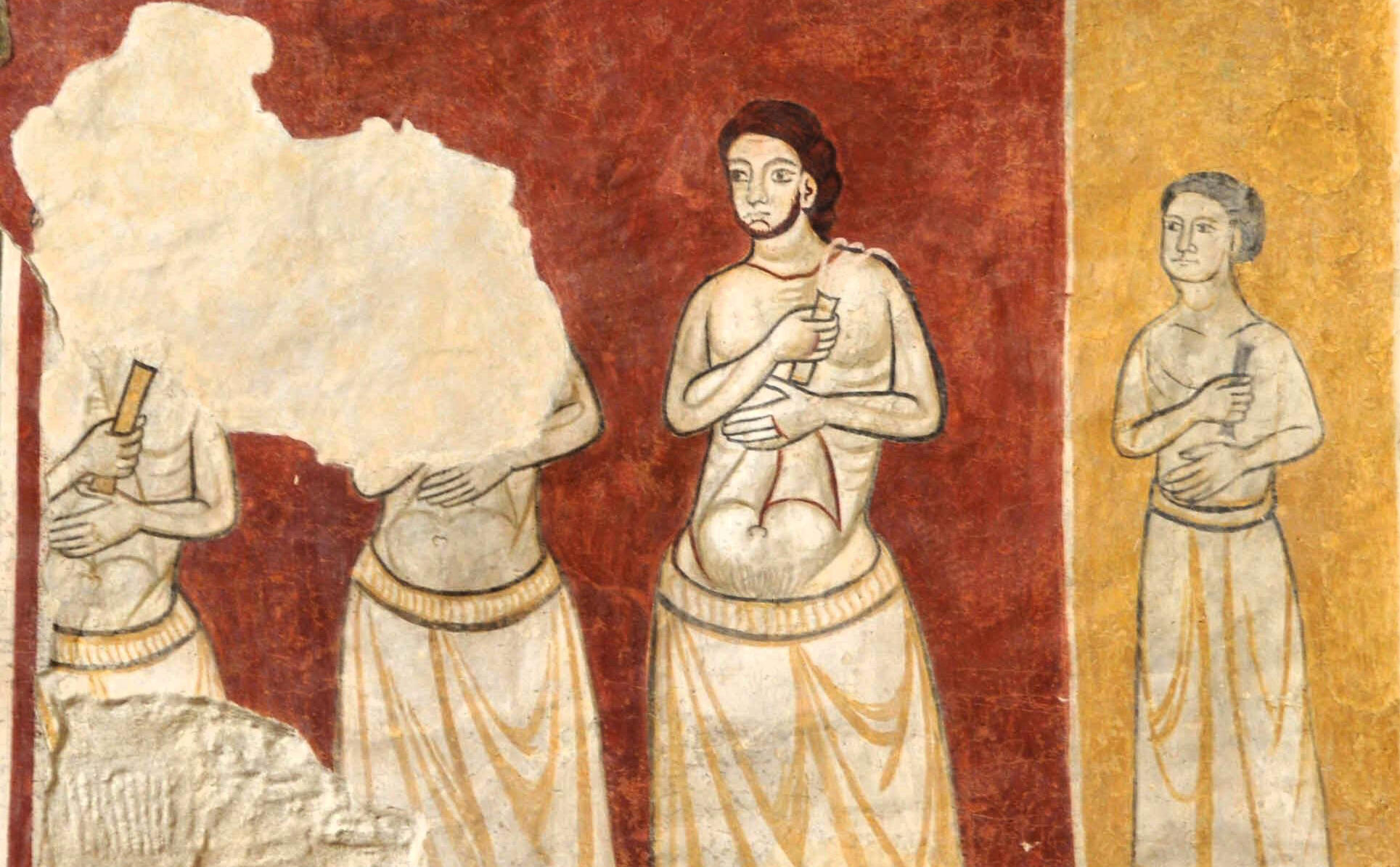
Seminar Series 2025-2026
"Emotional Grammars of Globalization"
Next Speaker: Beatriz Salamanca (Universidad Javeriana Cali)
Full programme
Isabel Harvey (Université Catholique de Louvain, Belgium): "Emotions of Nature: Alterity, Knowledge and Rhetoric in Jesuits Missions. New France, 17th century" 23 October 2025 - h 10.30-12.00 - University of Florence and online
Double Talk: Antonio De Caro (University of Zurich): "The Isle of Emotions: Imagining Saint Francis Xavier on Shangchuan Island"] and Sophie Ling-chia Wei (Chinese University of Hong Kong) "Sages, Saints, and Sentiments: When Christian Religious Emotions Meet Confucian Affection" 4 December 2025 - h 10.00-12.00 - click here to connect online
Beatriz Salamanca (Universidad Javeriana Cali): "Scripted Compassion: Women, Defiance, and Criminal Law in the Early Modern Hispanic World" 20 February 2026 - h 15.00-17.00 - online
Isabel Harvey
Emotions of Nature: Alterity, Knowledge and Rhetoric in Jesuits Missions. New France, 17th century23 October 2025, 10.30-12.00 CESTAula 201 (Palazzo Fenzi, Florence) and online on G-meetDownload Flyer
Paper Abstract:In the Relation of Jesuits from the missions of New France during the 17th century,
there are numerous outbursts of exasperation at the climate of this mission land, such as this
one from 1635: "La Nouvelle-France est un vray climat où on apprend parfaictement bien à
ne chercher que Dieu." The Jesuits first arrived in New France in 1611, and encountered a
territory covered in dense forests, irrigated by thousands of lakes and rivers, with a climate
reaching extremes. In the course of their gradual settlement on these lands, and in their travels
alongside the Wendats, they acquired knowledge on the continent, acquired knowledge and experienced
powerful emotions. These emotions were situated in a particular context, constructed in the
relationship with the indigenous populations, lived and internalized, but also theorized and
instrumentalized in a rhetoric of conversion. What were the environmental emotions
experienced by Jesuit missionaries? How did these emotions differ from those of indigenous
peoples, and why? What were the links between the acquisition, acceptance and application of
environmental knowledge and the emotions felt by missionaries in the face of the nature of
New France? The Jesuits were not the only missionaries to take over the territories of New
France: women joined them as early as the second half of the 17th century. These included the
Ursulines, such as Marie de l'Incarnation in Canada and Marie Tranchepain in Louisiana.
They, too, experienced the emotions of environmental novelty, but differently from their
Jesuit counterparts. What impact did this gendered difference in environmental experience
have on their adaptation of nature and to nature? This presentation will explore the different
ways in which groups interacting in the same spaces felt about the environment: missionaries-
missioned and men-women. It is part of an ongoing research project, MissNature, which aims,
on the one hand, to understand what the adjustments to nature were needed for a mission to
work, and on the other, the role of the environment encountered in the peripheries of
Christianity in the orientation taken by the Roman missionary program. We will consider
emotions as an actor in an ecosystemic approach to missions and their natural environment.
Speaker's Bio:Isabel Harvey is an FNRS postdoctoral fellow for the project MissNature, in environmental
history of Catholic missions at the Université Catholique de Louvain in Belgium, and an
associate professor in the history department of the Université du Québec à Montréal in
Canada. She is co-director of the research project Sorores. Religieuses non cloîtrées en
Europe (XII-XVIII), supported by the École française de Rome and Casa de Velazquez, and PI
of the project L'Église catholique devant les défis environnementaux : missions, mobilité et
climat en Italie du Sud, France et Amérique du Nord durant la période moderne, funded by
the Social Sciences and Humanities Research Council of Canada.
Double Talk:Antonio De Caro
The Isle of Emotions: Imagining Saint Francis Xavier on
Shangchuan IslandSophie Ling-chia Wei
Sages, Saints, and Sentiments: When Christian Religious
Emotions Meet Confucian Affection4 December 2025, 10.00-12.00 CETonline on G-meetDownload Flyer
The Isle of Emotions:The island of Shangchuan 上川, where Saint Francis Xavier S.J. (1506–1552) met his end, had been a liminal space for centuries, straddling the line between its cultic significance and its challenging remoteness. Far from the Portuguese enclave of Macau and the major cities of the Chinese empire, such as Guangzhou 廣州, Shangchuan possessed unique and captivating features that inspired artists to depict its landscape and features. This artistic fascination was epitomized by André Reinoso (circa 1590 – after 1650), who painted, in 1619, a portrait of the death of Francis Xavier, coinciding with Xavier’s beatification. After Francis Xavier’s canonization in 1622, the island became a symbol of the inception of Jesuit missions in China and served as a model for numerous missionaries who ventured across the vast Ming and later Qing empires. During his journey to present-day Vietnam in 1637, Fr. Giovanni Battista Bonelli S.J. (1589–1638) (re-)discovered the tomb of the Saint on Shangchuan Island, completely abandoned, and shared his concerns with other missionaries in Macau. As a result, a tombstone was carved in Macau to be placed there, marking the initial effort to restore the cultic significance of the tomb. This endeavor sparked multiple pilgrimages and journeys to Shangchuan Island. Chinese artists also joined this artistic and religious fervor, creating objects meant to be sent to Europe that contained the precious soil of the Saint’s burial place there. This talk explores the cross-cultural interactions that took place on Shangchuan Island, including the emotions experienced by those who visited Francis Xavier’s burial place and those who imagined its liminal aura.Sages, Saints, and Sentiments:
This talk explores how early-Qing Jesuit translators re-imagined Christian feeling through Confucian virtue to make the Gospel emotionally legible in China. Focusing on Figurist readings of the Yijing (Book of Changes), I show how Jesus was recast not as a distant Western saint but as a Confucian sheng ren—a model sage who embodies loyalty (zhong) and filial piety (xiao). By aligning the sage’s ethical charisma with Christian devotion, Figurists translated religious emotions into a local moral grammar that scholars and officials already lived by.
Drawing on Bouvet, Prémare, and Foucquet, the talk traces how symbols and numbers from the Yijing were reinterpreted to narrate creation, fall, and redemption, while the figure of Jesus was clothed in familiar virtues: omniscient, righteous, benevolent—and above all a filial son and loyal minister to the Heavenly Father. This emotional accommodation reframed worship as filial reverence and discipleship as loyal service, bridging two civilizational languages of the heart.
By following these translational moves—from omen and hexagram to virtue and feeling—the talk illuminates how “sages, saints, and sentiments” met on shared ethical ground, bringing the Yijing onto a global stage and opening new pathways for comparative study of religion and translation.
Beatriz Salamanca
Scripted Compassion: Women, Defiance, and Criminal Law in the Early Modern Hispanic World20 February 2026, 15.00-17.00 CET [online]
online on G-meetDownload Flyer
Paper Abstract:This paper explores early modern women who enacted compassion in ways that disrupted normative boundaries—whether by openly voicing their care initiatives, acting without male sanction, or asserting independent moral judgment. Francisca de Ávila, for instance, was arrested in 1575 by the Spanish Inquisition for her attempts to establish a community of women grounded in principles of care and mutual support. Although she was subjected to a public auto de fe, sentenced to one hundred lashes, and exiled from Toledo, she had already spent two decades living a life of service to the community and sharing her spiritual insights as a recognised public figure.
Drawing on William Reddy’s (2004) and Barbara Rosenwein’s (2006) insights into the normative dimension of historical emotions, I argue that some women exercised emotional agency in ways that destabilised prevailing power structures. By transforming what was typically cast as a docile virtue into a mode of dissent, they redefined compassion as a tool of resistance.
Though often subject to scrutiny and punishment, these women claimed agency through acts of care, challenged authority through their own ‘navigation of feeling’, and redefined compassion as a form of transgression.
A closer look at the history of compassion challenges the tendency to read human history solely through the lens of war and exploitation. It shifts attention toward scenarios of solidarity and cooperation, and highlights the ways in which different groups have organised to provide services and build networks of support and assistance. This research brings to the fore crucial transformations of the early modern Hispanic world, in which questions of how best to care about others became central to both public policies and individual practice. These reflections suggest that the increasingly normative connotations of compassion coincided with the embryonic transition between medieval narratives of salvation and the emergence of more centralised poor-relief initiatives.
Speaker's Bio:Beatriz Salamanca (PhD, UCL) is a lecturer at Universidad Javeriana Cali, where she teaches courses in Human Rights, the History of Philosophy and Law, and the History of Political Thought. Her current research examines hospitality and compassion in the early-modern Hispanic world, tracing their intersections with institutional change and evolving ideas about charity, poor relief, and power. She has held fellowships at the Institute of Humane Studies at George Mason University (2019) and the Madrid Institute for Advanced Study (2021).
See https://javerianacali. academia.edu/BeatrizSalamanca.
Seminar Series 2024-2025
"Emotional Grammars of Globalization"
Full programme
José María Pérez Fernández (University of Granada): "Inebriated by a barbaric language I need to possess immediately: the emotional tribulations of a grammarian trying to learn Arabic" 6 December 2024 - h 10.00-12.00 - University of Florence and online
Rob Boddice (Tampere University, McGill University): "History as it Actually Seemed: Theorizing Lived Experience" 27 February 2025 - h 17.00-19.00 - University of Florence and online
Piroska Nagy (University of Quebec at Montreal): "Think With! From Emotional to Affective Communities to Collective Experience" 28 March 2025 - h 15.00-17.00 - online
Pietro Delcorno (University of Bologna): “Look how I suffer and make my Passion yours. The Passion of Christ as collective emotional script" (1300-1500) 12 May 2025 - 15.00-17.00 - University of Florence and online
Paola von Wyss-Giacosa (Gotha Research Centre, University of Erfurt): “Drawing Distinctions. Bernard Picart’s Tableau des principales religions du monde (1727)" 26 May 2025 - 11.00-13.30 - University of Florence and online
Wanessa Asfora Nadler (Syracuse University in Florence/University of Coimbra/University of São Paulo): "Feeling Emotional about Food in the Early Middle Ages. Some Notes on Food Ambivalences": 3 June 2025 - 15.00-17.00 - University of Florence and online
Elisa Frei (Goethe-Universität Frankfurt): "Salt and Solitude: Ilarione Sala and the Emotional Cost of Missionary Mobility (c. 1700)": 1 July 2025 - 10.00-12.00 - online
Other events associated with meem
SeminarFeeling Together
Esperienze collettive di appartenenza nelle società di età moderna
Collective experiences of belonging in early modern societies19-20 May 2025ProgrammeProgramme and Book of Abstracts
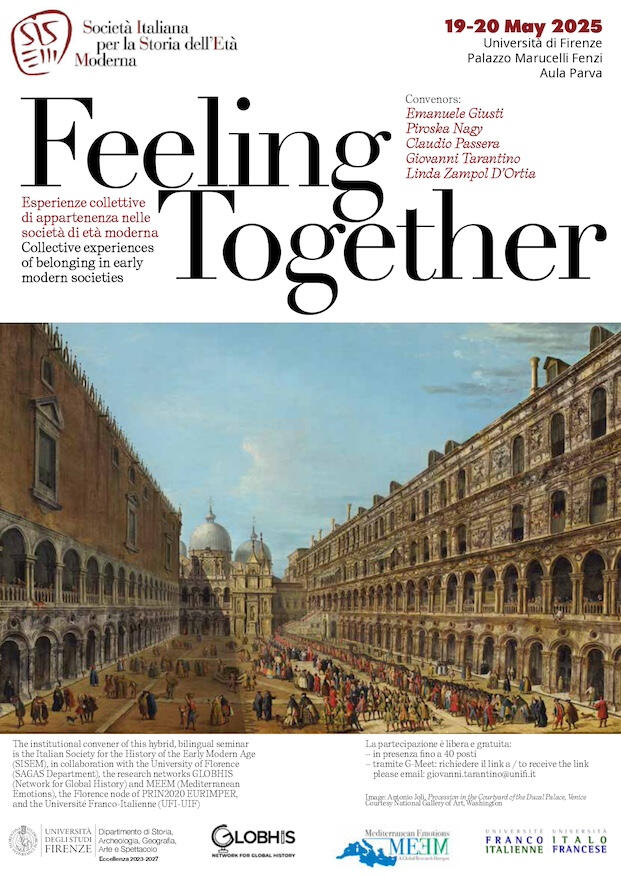
MEEM's team:
Giovanni Tarantino
Giovanni Tarantino, FRHistS, is Associate Professor of Early Modern History at the University of Florence and Honorary Research Fellow at the School of Humanities of The University of Western Australia. His interests lie in the intersections of religion, radical thinking, emotional and cultural entanglements. He is Co-Editor of the journals Cromohs and Emotions: History, Culture, Society. His publications include: ‘Falling In and Out of Place: The Errant Status of Solitude in Early Modern Europe’, in The Routledge History of Loneliness, ed. Katie Barclay, Elaine Chalus, and Deborah Simonton (Routledge, 2023); East and West Entangled (17th-21st Centuries) (2023, co-editor with Rolando Minuti); Twelve Cities – One Sea: Early Modern Mediterranean Port Cities and their Inhabitants (2023, co-editor with Paola von Wyss-Giacosa); Through Your Eyes: Religious Alterity and the Early Modern Western Imagination (co-editor with Paola von Wyss-Giacosa, Brill, 2021); Feeling Exclusion: Religious Conflict, Exile and Emotions in Early Modern Europe (co-editor with Charles Zika, Routledge, 2019).
Linda Zampol D'Ortia
Linda Zampol D’Ortia is Marie Skłodowska-Curie Global Fellow Plus One at Ca’ Foscari University of Venice and at the Australian Catholic University, where she is developing a project on the role of emotional practices in the early modern Jesuit missions in Asia. Her research interests include Christianity in Japan, early modern Catholic missions, gender history, the history of Asia-Europe contacts, materiality, emotions, and failure studies. She has recently published A Failed Mission? Salvation in the Jesuit Mission in Japan under Francisco Cabral with Ca’ Foscari University Press and is co-editor of a special issue of the Journal of Religious History on Gender and Emotions in premodern Japanese Christianity (2025).
Claudio Passera
Claudio Passera obtained a PhD in Visual and Performing Arts from the University of Florence in 2019. In the same year he was fellow at the Institute for Theatre and Opera of the Giorgio Cini Foundation in Venice. His research focuses on the celebration of princely power in Italy during the XVth century through ceremonies, spectacles and feasts and the use of the descriptions of these events – both in manuscripts and incunabula – for the promotion of princes’ public image. In 2020 he published the book “In questo picolo libretto”. Descrizioni di feste e di spettacoli per le nozze dei signori italiani del Rinascimento, Firenze University Press. Currently, he is postdoctoral research fellow at the University of Parma for the project MUTHEA: Parma, the French Capital of Italy. Music, Theatre and Art at the Time of G. Du Tillot (1749-1771).
Emanuele Giusti
Emanuele Giusti is a historian of the long eighteenth century. His works explore transcultural relations between Europe and Asia, with a particular focus on interactions with the Persianate world. His research examines the interplay between the study of the past, travel writing, and encyclopaedic literature, aiming to integrate the analysis of visual, material, environmental, and emotional elements into intellectual history and the history of historiography. His first book, Le quaranta colonne. Le rovine di Persia nella cultura europea del diciottesimo secolo, is forthcoming in 2025.
Use this form to sign up for MEEM's mailing list or just to get in contact with us:



















